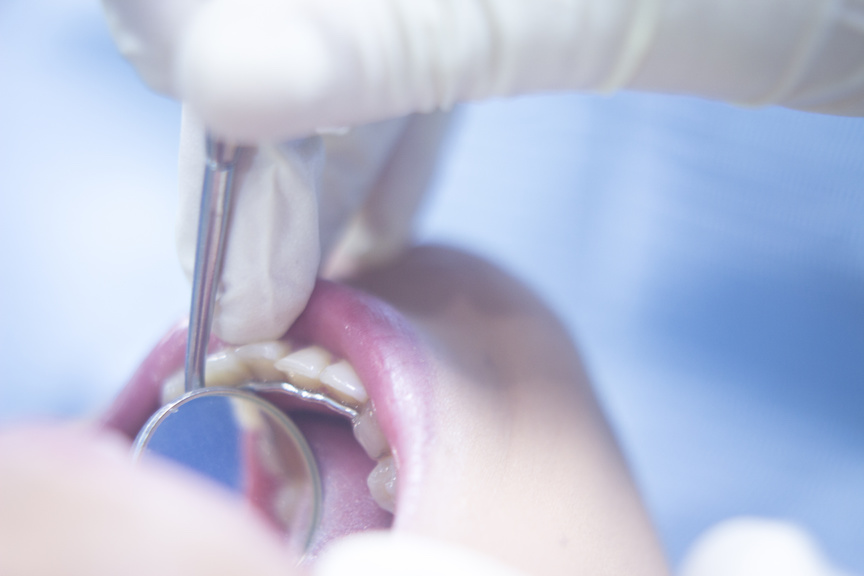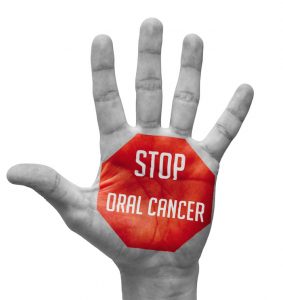Facts You Should Know About Oral Cancer
Every year, more than 640,000 cases of oral cancer are diagnosed around the globe–and it is deadly. Those with mouth cancer are more likely to die of the disease than those diagnosed with melanoma or cervical cancer. However, thousands of deaths could be prevented each year with early detection and treatment.
What is Oral Cancer and Who Can Get It?
The word “cancer” means an uncontrollable growth of cells that takes over tissue and causes damage to the body. It can occur in virtually any part of the body, including ct the tongue, lips, cheeks, floor of the mouth, hard palate and throat. Mouth cancer, or oral cancer, accounts for just under 5% of all cancers in the United States and is the 11th most common type of cancer worldwide.
Though more common in people over the age of 40 (especially men) anyone can be affected by cancer of the mouth. In fact, diagnosis is becoming more common among women and younger patients.
Some risk factors are:
- Alcohol and all types of tobacco use increase risk, doubly so when used in combination
- Too much sun and no protection can lead to cancer of the lips
- Recent studies have indicated that human papillomavirus (HPV) can increase the likelihood of mouth cancer
Diagnosing Cancer in and Around Your Mouth
 If diagnosed early, mouth cancer is quite treatable. Regular checkups are key to early detection as dental professionals like Dr. Haslam are trained to spot all types of mouth cancer in its earliest stages. During your dental visit, Dr. Haslam will carefully and thoroughly examine your mouth and neck to ensure that there are no signs of a problem.
If diagnosed early, mouth cancer is quite treatable. Regular checkups are key to early detection as dental professionals like Dr. Haslam are trained to spot all types of mouth cancer in its earliest stages. During your dental visit, Dr. Haslam will carefully and thoroughly examine your mouth and neck to ensure that there are no signs of a problem.
What are some of those telltale symptoms? They include:
- A mouth ulcer that fails to heal or heals abnormally
- White, red or speckled patch(es) of skin in the mouth
- Rough, eroded or crusty spots on the gums, lips or other mouth areas
- Unusual lumps or swelling in the neck, jaw, lips or inside the mouth
- Unexplained bleeding in the mouth, numbness or pain in the neck, face, mouth or ear area
- Sustained hoarseness of voice, chronic sore throat or a feeling that something is caught in the throat
- Difficulty chewing, swallowing, moving the jaw or tongue or speaking (especially slurred speech
- Dramatic weight loss
If you notice any of these symptoms, it’s important to call Dr. Haslam immediately. It’s always better to be safe than sorry, and he will be happy to help.
Can the Risk of Mouth Cancer be Reduced?
 As the saying goes, an ounce of prevention is worth a pound of cure. There are some things that you can do to lower your risk of mouth cancer, like:
As the saying goes, an ounce of prevention is worth a pound of cure. There are some things that you can do to lower your risk of mouth cancer, like:
- Ensure that your diet is balanced and healthy, with plenty of servings of fruit and vegetables each day (veggies rich in vitamin A are especially good)
- Limit sun exposure by wearing a wide-brimmed hat to protect your face and use a lip balm with sunscreen that blocks both UVA and UVB rays
- Avoid tobacco use in all forms and drink alcohol in moderation
- Get out and exercise, which can help strengthen your immune system
